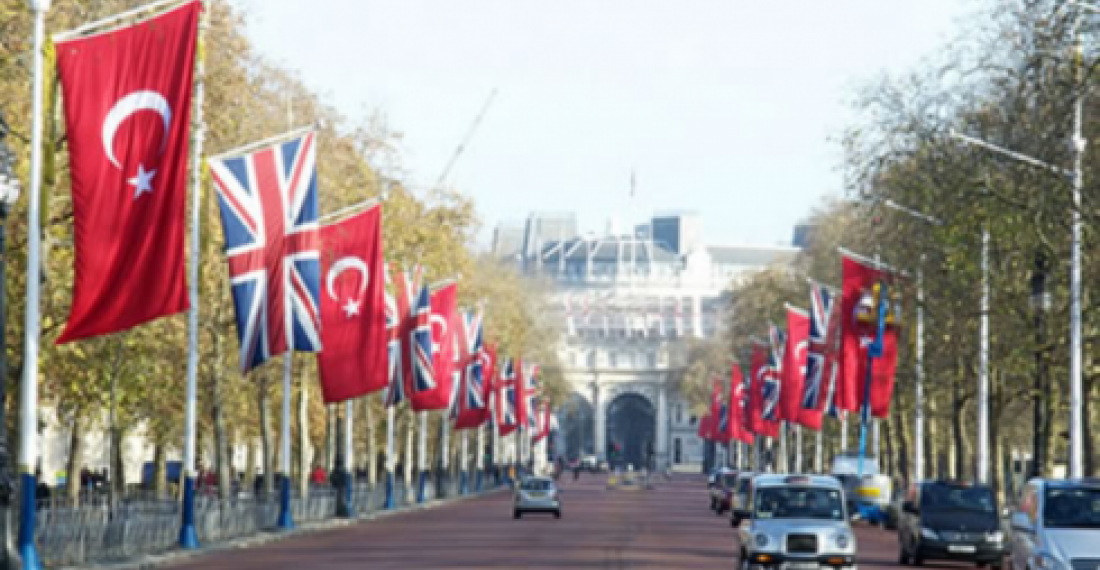The President of Turkey, Abdulla Gul arrived in London on Sunday afternoon at the start of an official visit as the guest of Queen Elisabeth II. He will also meet with British Prime Minister David Cameron, Deputy Prime Minister Nick Clegg and William Hague, the Foreign Secretary, during his four-day visit. In the talks with officials the main topic is expected to be the recent developments in Syria and the Middle East as well as bilateral relations.
Turkey's EU bid will also be at the top of the president's agenda in the UK.
Queen Elisabeth II will host lunch and dinner with the participation of other members of the royal family, in honor of the Turkish president at the Buckingham Palace, where the Gül family is expected to spend part of their stay in London. Gül will speak on "the historic change in the Middle East and its effects on global policies" at Wilton Park. He will also address the British parliament.
The Sunday Telegraph newspaper yesterday published an interview with the Turkish President. Focusing on Turkey-EU relations Gul said that "Turkey is a natural part of Europe. Being a member of the Council of Europe and the European Court of Human Rights; being one of the oldest members of NATO, as well as being part of European culture and art - this is a natural path Turkey is flowing along," Gül said.
"People who think in a narrow scope and who lack strategic perspective consider Turkey's EU membership a burden," he said. "But those who can think 30 years, 60 years ahead and who can think about the changing trends in the economy and the changing centers of power, can understand how much strength Turkey could bring to the existing strength of Europe," Gül said. "In the past it was only considered from the perspective of security, Turkey being a strong and old member of NATO," Gül said. "But now, consider the potential that Turkey has: Turkey's position, her assets, the value she can add in terms of energy resources, her population, the dynamism she can bring into Europe and also the growth that she can bring, with Turkey being the engine of this growth."
Gül said there was no longer a place for authoritarian regimes in the Mediterranean region. He added that "Iran is a very important country in the region, with its potential, its history and its culture". Gül said, "The situation in a way is turning into another era of the Cold War. We are trying to eliminate the lack of trust or confidence between Iran and the Western world, trying to build confidence and acting like a catalyst, for example concerning the nuclear issue".
Source: commonspace.eu with Hurriyet Daily News and Todays Zaman
photo: British and Turkish Flags in front of Buckingham Palace during the State Visit of the Turkish President (picture courtesy of the Press Service of the president of Turkey)







